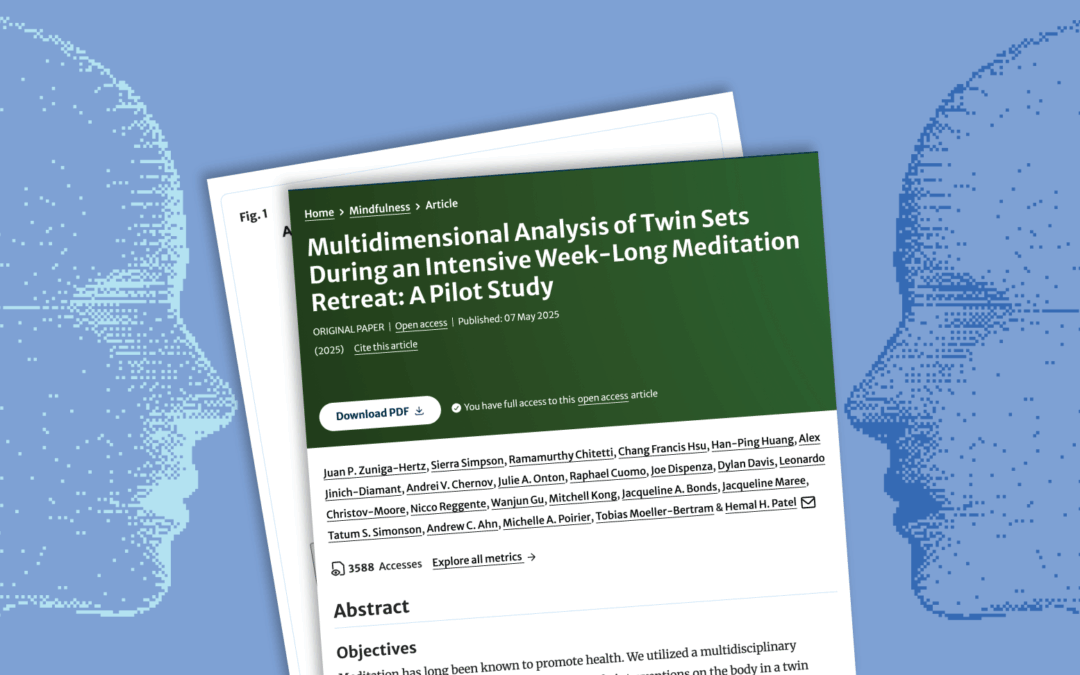
Our research partners at UC San Diego have just published a paper titled “Multidimensional analysis of twin sets during an intensive week-long meditation retreat: A pilot study” in Mindfulness Journal.
Highlighting the findings of the first study of its kind on twins, the paper investigates the impact of meditation on the brain, body, and heart during a seven-day intervention: a Week Long Advanced Retreat with Dr Joe.

The 6th Big Syn International Film Festival is screening a dazzling array of nearly 150 films that have been selected from hundreds of feature films, shorts, documentaries, animations, micro-shorts and charity films from over 120 countries. Amongst others, a notable film that is screening at the festival is SOURCE, a mind blowing movie on the science behind meditation. Directed and Written by Melissa Tittl from Hathor studios, this movie follows the work of International teacher and researcher Dr Joe Dispenza and a group of scientists from UCSD and Innerscience to reveal the truth about meditation and our bodies.

Dr Joe partnered with Dr Peta Stapleton at Australia’s Bond University to study meditation’s effects on 900 primary school children over a 10-week period. This is the largest study on kids and meditation ever conducted.

As we reflect upon 2023, we are filled with gratitude for your commitment to our shared mission: advancing the understanding of the biological and physiological impacts of meditation on the human body. This year is highlighted by remarkable strides in research, with groundbreaking studies shedding light on the profound ways in which meditation empowers individuals to heal and thrive. Your generous contributions have fueled numerous projects, allowing us to explore meditation and its effects on overall well-being. With this report, we celebrate not only the scientific achievements but also our incredible Catalyst Community!

The paper details our research teams’ isolation and identification of SERPINA5, a protein that inhibits a SARS-CoV-2 pseudo-virus containing a spike protein from entering the cell. It also demonstrates that meditation not only elevates levels of SERPINA5 in the blood, but the more experienced you are as a meditator and the more you practice, the more protection you have against the virus.

Meditation and mindfulness are thought to have a wide range of benefits for overall wellbeing and mental health, but could they help individuals battle cancer, anxiety, depression, Alzheimer’s disease or diabetes? InnerScience Research Fund has committed to provide up to $10 million to the University of California San Diego over the next five years to support research on how meditation may impede the progression of serious terminal and chronic illnesses that affect millions of people each year.







